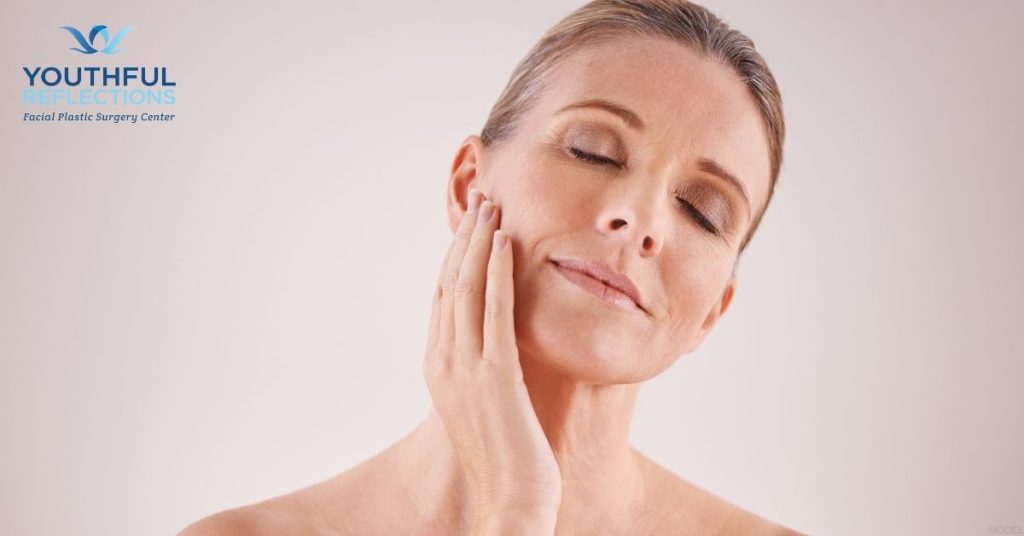Laser skin resurfacing may be minimally invasive and nonsurgical, but it often requires some downtime afterward. Before you book your treatment, you should prepare for a recovery period and the gradual unveiling of your results. Below, we answer some top questions regarding laser skin resurfacing recovery.
What Happens After Laser Skin Resurfacing?
After your treatment, your provider will apply a protective ointment or dressing to the area and walk you through your post-care instructions. Following these protocols will help you prevent infection and promote a smoother, quicker recovery.
It’s normal to experience redness, swelling, and mild discomfort, similar to a sunburn immediately after your procedure. Your skin may feel tight, and depending on the type of laser used (ablative or non-ablative), you might also notice some oozing or crusting. More intensive treatments will create ‘MENDs’ in the skin, small specks that will darken and slough off as the skin renews.
How Long Is Laser Skin Resurfacing Recovery?
Your laser skin resurfacing recovery time will vary based on your individual healing rate and the intensity and depth of your treatment. Here is what you can typically expect:
- Ablative Lasers (e.g., CO2 or erbium): These treatments penetrate the surface and deep layers of the skin, removing the damaged layers and revealing the fresh, healthy tissue beneath. It typically takes 7 to 14 days for the skin to heal fully. However, residual redness may persist for several weeks to months, depending on your skin type and sensitivity.
- Non-Ablative Lasers (e.g., Fraxel): These treatments are less invasive than ablative laser treatments. They target the deeper layers of the skin without removing the surface layer. Recovery is quicker than with ablative lasers, often around 3 to 7 days, with mild redness and swelling.
During the first week, you’ll notice peeling and flaking as the treated skin begins to shed. These aftereffects are part of your body’s natural healing process. Although it may be tempting, please remember not to pick at your skin, as this can delay your healing.
How Long Does It Take To See Results From Laser Skin Resurfacing?
While some improvements may be visible as soon as the initial redness fades, your full results can take 2 to 3 months to develop. Keep in mind that your skin continues to regenerate and produce collagen long after the treatment, so the results are gradual but long-lasting.
For non-ablative lasers, you may notice incremental improvements over multiple sessions. Ablative lasers, meanwhile, often need just one session but come with a more extensive recovery. However, the results are typically more than worth it!
How Can You Maximize Your Laser Skin Resurfacing Results?
Laser skin resurfacing leads to long-term improvements in your skin’s tone, texture, and quality. The results can last for years with a healthy lifestyle and good skincare regimen. Other ways you can support the longevity of your results include:
- Protect Your Skin: Apply a broad-spectrum sunscreen with SPF 30 or higher daily to shield your skin from harmful UV rays.
- Hydrate: Keep your skin moisturized with products recommended by your provider. Don’t neglect internal hydration, either! Drink plenty of water to support your skin from the inside out.
- Stop Smoking: Smoking slows the healing process and interferes with collagen production. It can also undo your results by accelerating visible aging.
See the difference that laser skin resurfacing can make for you in our related blog post, where we showcase some of our favorite transformations.
Reveal Your Most Radiant Skin
Laser skin resurfacing offers significant benefits, from a smoother skin texture to a more even tone, but patience is key for optimal recovery and results. If you would like to explore your skin rejuvenation options, please request a consultation or call us at (615) 942-8016 to get started.






Leave a Reply